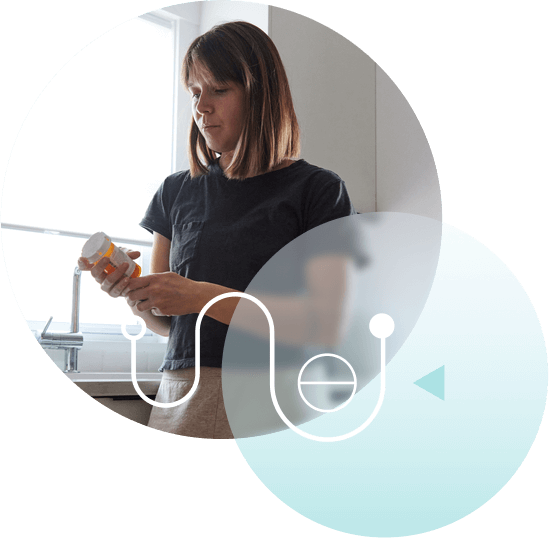We understand that you may be feeling a bit uncertain about starting a new medication and whether it will help you feel better. You’re not alone—many patients have similar questions and we’ll work together with you to find the answers.
It’s important to keep in mind that some medications work better for certain people than others because each person is different. Our genetics, age, and gender, among other differences, can all affect how we respond to a medication, so your response to Luvox (fluvoxamine) may be different from someone else’s response. Underlying health conditions, other medications you take, and dietary considerations can also play a role in how you react to a new medication.
At Brightside, we can help you find the right medication to help you feel better.
Before starting a new medication like Luvox (fluvoxamine), you should get a comprehensive health assessment from a provider who understands your health history. You should only take Luvox (fluvoxamine) if a physician or other qualified psychiatric provider prescribed it for you.
It can take several weeks before you start feeling the effects of Luvox (fluvoxamine). We understand that this can feel like a long time, but it’s important to continue taking your medication even if you don’t feel improvement right away.
In most cases, your provider will have you start on a low dose of Luvox (fluvoxamine) and gradually increase your dose over a few weeks. At Brightside, our board-certified providers will closely monitor your progress to make sure this medication and dosage is right for you.
If you ever have questions about your medication or need to meet with a provider to talk about your treatment—don’t wait. Your board-certified Brightside provider will keep a close eye on your progress and make any appropriate adjustments to ensure your medication and dosage offer you the best results. We also offer telehealth services and provider consultations that can be scheduled within 48 hours.
























